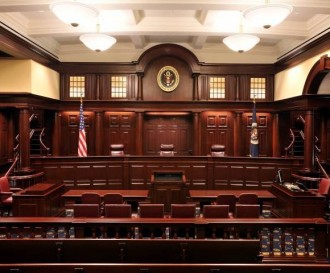
August 9, 2017
Federal Circuit: Lanham Act Fee Awards Should Be Lead-Free
Since the Supreme Court’s ruling in Octane Fitness, most clients ask what the chances are that they will recover their attorneys fees. This is always a tricky question and is even more complicated in trademark infringement litigation as each Circuit has its own approach to determining when to award fees. Most people understand that Octane decided the “exceptional case” standard in the patent context, but, did it also change the standard in Lanham Act cases? On Aug. 9, the Federal Circuit said yes and definitively linked the Patent Act and Lanham Act’s exceptional case standard.
In Romag Fasteners, Inc. v. Fossil, Inc., Romag obtained a jury award finding Fossil liable for patent infringement, trademark infringement and unfair competition. The jury’s verdict was affirmed by the district court and the Federal Circuit. Subsequently, Romag sought attorneys fees under Section 285 of the Patent Act, Section 1117 of the Lanham Act and the Connecticut Unfair Trade Practices Act (CUTPA). The district court awarded fees under Section 285 and the CUTPA but declined to award fees under the Lanham Act. In declining to award fees under the Lanham Act, the District Court noted that Second Circuit precedent authorizes fee awards under Section 1117(a) “on evidence of fraud or bad faith.” The Court determined that “in the absence of bad faith, fraud, or willfulness on part of the Defendants, this case is not ‘exceptional’ within the meaning of the Lanham Act and Plaintiff is not entitled to recover its reasonable attorney’s fees.”
Romag appealed the denial of fees under the Lanham Act, contending that the District Court should have applied the Octane Fitness standard in assessing fees under Section 1117. Notably, Romag noted that the District Court concluded that the “case is ‘exceptional’ under the more lenient Patent Act standard announced in Octane Fitness, it d[id] not find that Defendant acted fraudulently or in bad faith [under the Louis Vuitton standard] … with respect to trademark infringement … to recover its reasonable attorney’s fees under” the Lanham Act.
The Federal Circuit agreed with Romag, concluding “the district court erred and that the Octane standard applies to the Lanham Act.” In support for its holding, the Federal Circuit noted that the language in Section 285 and Section 1117 is identical:
| 35 U.S.C 285 | 15 U.S.C. 1117(a) |
|---|---|
| The court in exceptional cases may award reasonable attorney fees to the prevailing party | The court in exceptional cases may award reasonable attorney fees to the prevailing party |
The Court noted established precedent that holds where the same statutory language is used “in two statutes having similar purposes … it is appropriate to presume that Congress intended the text to have the same meaning in both statutes.” The Court noted that the Octane Court looked to Noxell Corp., a Lanham Act case to support its definition of “exceptional.” Further, the Federal Circuit noted that the Third, Fourth, Fifth, Sixth and Ninth Circuits have held that Octane defined the meaning of “exception” not only as it applies to Section 285, but, also as is applies to Section 1117. In fact, the Federal Circuit noted that “no circuit has specifically considered Octane and then declined to apply it to the Lanham Act.” For these reasons, the Federal Circuit vacated and remanded the case to the District Court for the determination of whether Lanham Act fees should be awarded based on the Octane standard.
takeaway
The more lenient Octane standard applies in Lanham Act cases, which may result in an increased number of attorneys fees awards.
Case: Romag Fasteners, Inc. v. Fossil, Inc., http://www.cafc.uscourts.gov/sites/default/files/opinions-orders/16-1115.Opinion.8-7-2017.1.PDF


































